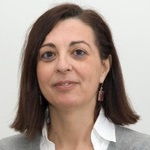
Christos Malliarakis
Christos Malliarakis holds a BSc in Applied Informatics from the University of Macedonia in Thessaloniki and an MSc in Informatics from the Computer Science Department of the Aristotle University of Thessaloniki. He is undergoing his PhD research in Game Based Learning and Game Design on Computer Programming since May 2011, supervised by Professor Maya Satratzemi and Lecturer Stelios Xinogalos.
He has worked in Primary and Secondary education for 4 years in Mandoulides Schools, a large private school located in Thessaloniki, Greece. He has also tutored many students for National Competitions and Balkan Olympiads in Informatics with many distinctions. In 2012 he was co-leader of the Greek National Team that participated in Junior Balkan Olympiad in Informatics (JBOI 2012) held in FYROM.
He has also worked as a senior developer and an IT manager for more than two years in Mandoulides Schools, which were consisted of two seperate campuses and more than 2.000 members (teachers, administrative staff and students). He has developed several educational websites, organizational software, educational games and analytic tools, while he also developed the main information system for Thessaloniki’s water supply company EYATH S.A.

Maya Satratzemi
Maria-Katerina (Maya) Satratzemi was born in Jan. 24, 1958 at Volos, Greece. She was awarded the BS degree in Mathematics from the Aristotle University of Thessaloniki in 1980, and the PhD degree in Informatics (Algorithmic Graph Theory) in 1991 from the department of Applied Informatics, University of Macedonia .
She was elected Lecturer at the department of Applied Informatics, University of Macedonia (1992) where she continued her career as Assistant Professor (1997), Associate Professor (2003) and Full Professor (2008).
During 2004-2008 she served as Research Coordinator of the project «New departments at the University of Macedonia – dept. of Technology Management, European Regional Development Fund (ERDF): Education and Initial Vocational Training II (EPEAEK II), Measure 2.2” and member of the General Assembly -supreme body of administration of the department Technology Management. During 2004-2005, she has been coordinator of the project “ICT Equipment, University of Macedonia”, European Regional Development Fund (ERDF). She is Director of the Graduate Program of the Department of Applied Informatics, University of Macedonia. She is reviewer in scientific journals and conferences, and she is member of the program committees in several ICT conferences.
She has published more than 30 papers in journals and 70 papers in conferences proceedings. Her current research interests include Programming Environments and Techniques, Adaptive Systems, Serious Games, Game Based Learning, Collaborative Programming – Distributed Collaborative Programming Environments, Educational Technology, Graph Algorithms and Applications.

Stelios Xinogalos
Xinogalos Stelios holds a Bsc in Applied Informatics from the University of Macedonia in Thessaloniki, Greece. He received his PhD in Informatics from the University of Macedonia in 2002, with his dissertation entitled “Educational Technology: a Didactic Microworld for an Introduction to Object Oriented Programming”.
He has designed and implemented two programming microworlds: (i) objectKarel for an introduction to fundamental Object Oriented Programming (OOP) concepts (in the context of his PhD, supervisor Prof. Satratzemi Maya); (ii) Karel for an introduction to imperative-procedural programming (postdoctoral researcher in the context of the Operational Programme “Education and Initial Vocational Training II (EPEAEK)” co-financed by the European Union). Currently, objectKarel is used in tertiary education for an introduction to OOP, while both objectKarel and Karel have been included in the “In-Service Training of Informatics Teachers for the utilisation and application of ICT in the teaching practice” (Operational Programme “Lifelong Learning”, NSRF (2007-2013) co-funded from the European Union and the European Social Fund).
He has worked in Secondary Education as an Informatics teacher for 12 years (until 2010) and has taught several undergraduate and postgraduate courses on introductory programming, OOP, OO analysis and design and web programming since 1998 as a PhD student, adjunct lecturer and currently as an elected lecturer at the Department of Applied Informatics, University of Macedonia.
His current research interests include Programming Techniques and Environments, Didactics of Programming, Educational Technology, Serious Games, Game-based Learning, and Mobile app development. He has authored or co-authored more than fifty papers on journals, book chapters and conferences on the aforementioned issues.
PUBLICATIONS (CMX)
International Journals
- Malliarakis, C., Satratzemi, M. & Xinogalos, S. (2014). Designing Educational Games for Computer Programming: A holistic Framework.Electronic Journal of e-Learning, 12(3), pp. 281 – 298.
- Malliarakis, C., Satratzemi, M. & Xinogalos, S. (2014). Optimization of server performance in the CMX educational MMORPG for Computer Programming. Computer Science and Information Systems,11(4), 1537-1553.
- Malliarakis, C., Satratzemi, M. & Xinogalos, S. (2015). CMX: The effects of an educational MMORPG on learning and teaching Computer Programming.IEEE Transaction on Learning Technlogies (under review).
- Xinogalos, S., Satratzemi, M. & Malliarakis, C. (2015). Microworlds, Games, Animations, Mobile apps, Puzzle editors and more: what is important for an introductory programming environment? Education and Information Technologies, DOI: 10.1007/s10639-015-9433-1.
Book Chapters
- Malliarakis, C., Satratzemi, M. & Xinogalos, S. (2014). Educational Games for Teaching Computer Programming. InResearch on e-Learning and ICT in Education (pp. 87-98). Springer New York.
- Malliarakis, C., Satratzemi, M. &Xinogalos, S. (2015). CMX: An MMORPG for teaching and learning computer programming. Developing a Game for the purposes of Learning: A series of Case Histories. Academic Publishing International. (under review).
International Conferences
- Malliarakis, C., Xinogalos, S. & Satratzemi, M. (2012). Educational games for computer programming. Proceedings of the 8th Panhellenic Conference with International Participation “Information and Communication Technologies in Education”, University of Thessaly, Volos, pp. 28-30, September 2012.
- Malliarakis, C., Satratzemi, M. & Xinogalos, S. (2012). Towards the constructive incorporation of serious games within object oriented programming. InProceedings of the 6th European Conference on Games Based Learning (ECGBL 2012) (pp. 301-308).
- Malliarakis, C., Satratzemi, M. and Xinogalos, S. (2013). A holistic framework for the development of an educational game aiming to teach computer programming. In7th European Conference on Games Based Learning: ECGBL2013 (pp. 359-368).
- Malliarakis, C., Satratzemi, M. & Xinogalos, S. (2013). Towards optimizing server performance in an educational MMORPG for teaching computer programming. In11th International Conference of Numerical Analysis and Applied Mathematics 2013: ICNAAM 2013 (Vol. 1558, No. 1, pp. 345-348). AIP Publishing.
- Malliarakis, C., Satratzemi, M. & Xinogalos, S. (2013). Towards a new massive multiplayer online role playing game for introductory programming. InProceedings of the 6th Balkan Conference in Informatics (pp. 156-163). ACM.
- Malliarakis, C., Satratzemi, M. & Xinogalos, S. (2014). Integrating learning analytics in an educational MMORPG for computer programming. InAdvanced Learning Technologies (ICALT), 2014 IEEE 14th International Conference on(pp. 233-237). IEEE.
- Malliarakis, C., Satratzemi, M. & Xinogalos, S. (2014). CMX: Implementing an MMORPG for Learning Programming. In8th European Conference on Games Based Learning: ECGBL2014 (p. 346-355).
- Xinogalos, S., Malliarakis, C., Tsmpanoudi, D. and Satrtatzemi, M. (2015). Microworlds, Games and Collaboration: three effective approaches to support novices in learning programming. In Proceedings of the 7th Balkan Conference on Informatics Conference (BCI ’15). ACM, New York, NY, USA, Article 39, 8 pages.
Educational Software Systems
- Eclipse plug-in: Collaborative Distributed Pair Programming (work in progress)Tsompanoudi, D., Satratzemi, M. and Xinogalos, S. (2013). Exploring the effects of Collaboration Scripts embedded in a Distributed Pair Programming System. Proceedings of the 18th ACM ITiCSE Conference, 1-3 July 2013, Canterbury UK, 225-230.
- Proper: An adaptive SSCORM compliant LMSKazanidis, I., Satratzemi, M. (2009). Adaptivity in ProPer: an adaptive SCORM compliant LMS, Journal of Distance Education Technologies, 7, 2, 44-62.
DELYS: A microworld-based educational software for teaching Computer Science subjects
- Dagdilelis, V., Evangelidis, G., Satratzemi, M., Zagouras, C. (2003). DELYS: A novel microworld-based educational software for teaching Computer Science subjects, Computers & Education, Volume 40, Issue 4, 2003, 307 – 325, Elsevier Publishers.WIPE: Educational programming environmentEvangelidis, G., Efopoulos, V., Dagdilelis, V., Satratzemi, M. (2005). WIPE: A programming environment for novices, ACM SIGCSE Bulletin, 37(3), 113-117.
objectKarel: a programming microworld for Object-Oriented Programming
Xinogalos, S., Satratzemi, M. Dagdilelis, V. (2006). An Introduction to Object-oriented programming with a didactic Microworld: objectKarel, Computers & Education, 47, 148-171, Elsevier Publishers.
Karel: A programming microworld for Imperative-Procedural Programming
Xinogalos, S. (2011), Teaching Programming to Secondary Education Students with a Learning Environment Based on “Karel the Robot”: A Pilot Study in a Greek High School, In Horizons in Computer Science Research, Vol. 2, Thomas S. Clary (Ed.), New York: Nova Science, 67-92.
DIDAGRAPH: Software for teaching GraphTheory Algorithms
Dagdilelis, V., Satratzemi, M. (1998). DIDAGRAPH: A Software for Teaching Graph Theory Algorithms, ACM SIGCSE Bulletin, 30 (3), 64-68. Post’s machine: a microworld for an introduction to formal programming Dagdilelis, V., Satratzemi, M. (2001).
- Post’s Machine: a didactic microworld as an introduction to formal programmingDagdilelis, V., Satratzemi, M. (2001). Post’s Machine: a didactic microworld as an introduction to formal programming, Education and Information Technologies, 6:2, 123-141.